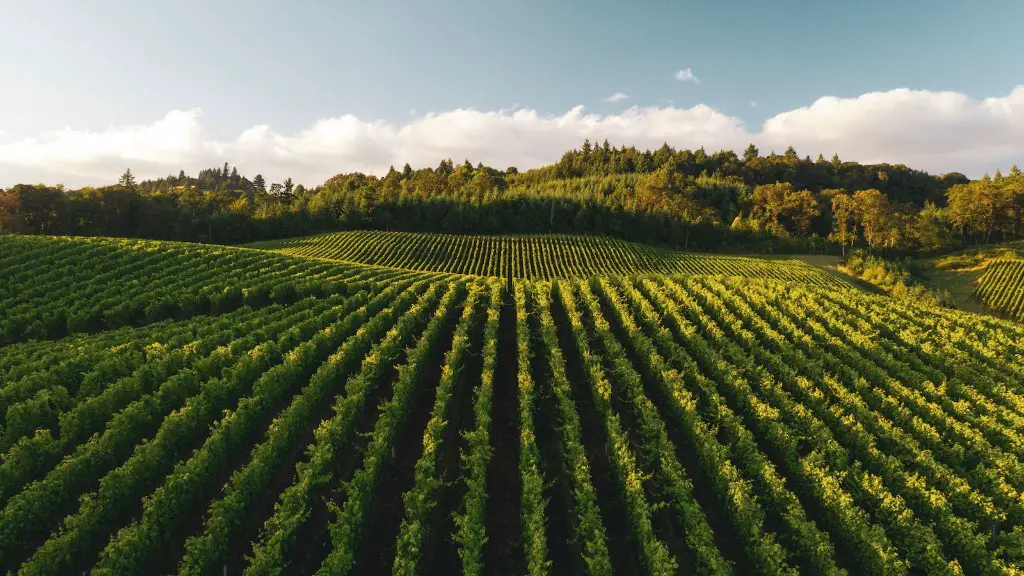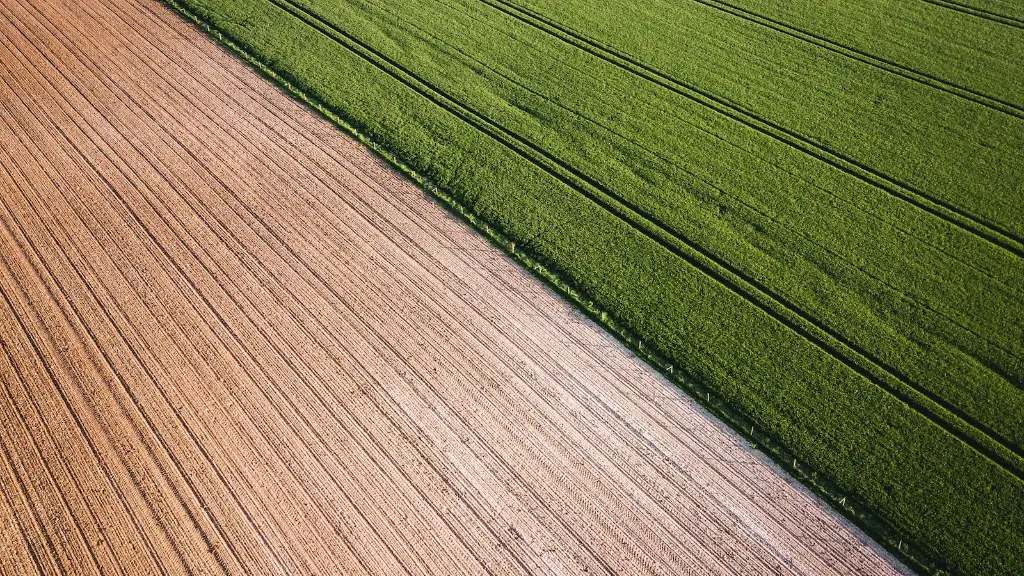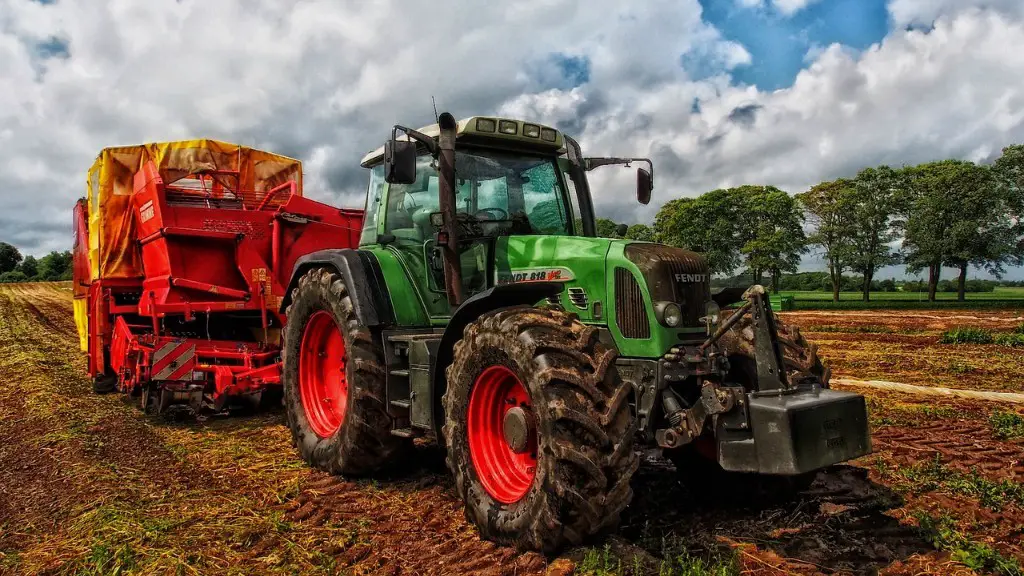The economy of North Africa is highly diversified, with a large sector of the workforce engaged in agriculture. Agriculture plays a significant role in the region’s overall economy, contributing a sizable portion of the GDP. The sector employs a large percentage of the workforce, and its products are a major source of export earnings.
Agriculture plays an important role in North Africa’s economy. The sector employs a large percentage of the region’s workforce and contributes significantly to its gross domestic product (GDP). In addition, agriculture is a major source of export earnings for North African countries.
What is the role of agriculture in an African economy?
Agriculture in Africa has a massive social and economic footprint. More than 60 percent of the population of sub-Saharan Africa is smallholder farmers, and about 23 percent of sub-Saharan Africa’s GDP comes from agriculture. Yet, Africa’s full agricultural potential remains untapped.
The Agricultural Transformation Agenda (ATA) is a framework for promoting growth and transformation in the agricultural sector in Africa. The ATA has four main pillars:
1. Increasing agricultural productivity
2. Promoting structural transformation
3. Building inclusive and efficient agricultural value chains
4. Creating a enabling environment for agriculture
The ATA is being implemented through a number of initiatives, including the Comprehensive Africa Agriculture Development Programme (CAADP), the Alliance for a Green Revolution in Africa (AGRA), and the New Partnership for Africa’s Development (NEPAD).
The main rainfed crops in the Mediterranean are wheat, barley, legumes, olives, grapes, fruit and vegetables. A wide range of subtropical crops, including fruit and vegetables, is also grown under irrigation in the summer months. The main constraints on rainfed agriculture are the high variability of rainfall and the risk of drought.
How does agriculture affect the economy
The agricultural sector is a significant contributor to the US economy, accounting for roughly $1264 trillion in GDP in 2021. This sector is comprised of many different industries, including farming, food production, and related services. Together, these industries account for approximately 54 percent of US GDP.
The farming industry itself is a significant contributor to the agricultural sector, accounting for $1647 billion in GDP. This represents approximately 07 percent of US GDP. The farming industry employs a large number of Americans and plays a vital role in the US economy.
Growth in the agriculture sector is crucial for economic development and poverty reduction. Agriculture is a key sector in many least developed countries, and growth in this sector is two to four times more effective in raising incomes among the poorest compared to other sectors. Agriculture is also crucial to economic growth: accounting for 4% of global gross domestic product (GDP) and in some least developing countries, it can account for more than 25% of GDP.
How is agriculture the backbone of African economy?
Africa’s agricultural economy is the backbone of the continent’s economy, employing 65-70% of its labor force and accounting for 30-40% of GDP. More than 70% of Africa’s poor live in rural areas and rely on agriculture for their livelihoods. Agricultural productivity in Africa is low compared to other continents, due to a lack of investment, technology, and infrastructure. This lack of investment has led to a vicious cycle of poverty and underdevelopment in rural Africa. To break this cycle, African countries need to invest in their agricultural sectors, providing farmers with the resources and support they need to increase productivity and improve their livelihoods.
Agriculture is vital to the food we eat and the economy of sub-Saharan Africa. It accounts for at least 23% of GDP and employs around 40% of the workforce. The sector is under pressure from climate change, pests and diseases, and poor infrastructure. However, with the right policies and investments, it has the potential to provide food security and economic growth for the region.
What is the main economy in North Africa?
According to the World Bank, Egypt was the largest economy in North Africa in 2022, with a GDP of $1.3 trillion. Egypt is a diversified economy, with sectors such as agriculture, tourism, manufacturing, and construction accounting for a significant portion of the country’s GDP. The Egyptian economy is forecast to grow at a moderate pace in the coming years, supported by continued government reforms and increased foreign investment.
The African Continental Free Trade Area is a major economic force on the continent, providing employment for a large percentage of the population and contributing significantly to GDP and export values. The agreement is also beneficial for promoting regional integration and cooperation, as well as opening up new opportunities for trade and investment.
What type of economy does North Africa have
The high share of informal activity and employment in North African economies is a major structural challenge. Informal workers are often paid lower wages, are more vulnerable to economic shocks, and have less access to social protection. The informal sector also contributes to tax evasion and cheating, which reduces government revenue and makes it harder to provide quality public services.
Reforming the informal sector will require a combination of policy measuresto formalize businesses, reduce regulatory burdens, and improve access to finance. In addition, social protection initiatives are needed to help informal workers cope with economic shocks and access essential services. Improving the business environment in North Africa will require continued reforms to reduce corruption, bureaucracy, and red tape.
Macroeconomics is the study of the economy as a whole. It looks at the big picture of an economy and how it affects people. Microeconomics, on the other hand, looks at the individual parts of the economy, such as consumers, businesses, and specific markets.
key factors that link agriculture to the US and global macroeconomy are exchange rates, international trade, foreign and domestic income, employment, interest rates, and energy costs. All of these factors play a role in how well the agricultural sector of the economy is doing.
Exchange rates can affect the demand for a country’s exports, and therefore, the prices of agricultural goods in the global market. If the value of a country’s currency decreases, then its exports become more expensive for other countries to buy. This can lead to less demand for the country’s exports, and lower prices for its agricultural products.
International trade can also affect the prices of agricultural goods. If a country imposes tariffs or other trade barriers on imports of agricultural products, this can reduce the demand for those products in the global market and lead to lower prices.
Foreign and domestic income can affect the demand for agricultural products. If people in a country have less money to spend, they
What is the most important economic roles played by agriculture?
Agricultural production is a key driver of economic growth and poverty reduction in developing countries. It creates employment opportunities and incomes for the poor, while also providing food security.
Agricultural exports also provide foreign exchange earnings that can help to finance imports of other goods and services. In addition, agriculture can drive trade in other sectors, such as processed foods, textiles and clothing, and horticulture.
Despite its importance, agriculture is often overlooked in global trade negotiations. This is because the sector is typically highly protected and subsidised in developed countries, while developing countries often face significant barriers to exporting their agricultural products.
As a result, there is a need for more inclusive and ambitious trade agreements that take into account the interests of all countries, including those with large agricultural sectors.
The agricultural sector is the backbone of the agro-based industries. The production and productivity of these industries are highly dependent on the agricultural sector. The growth of the agro-based industries is also linked to the agricultural sector.
What are the three contribution of agriculture to the development of Nigeria
Agriculture is extremely important in Nigeria, as it is the main source of employment and food provision, as well as a valuable contributor to the country’s GDP. Agriculture is also a major source of foreign exchange for Nigeria.
Agriculture was traditionally seen as a sector that passively contributed to development by providing labor and food to the industrialization process. However, agriculture can play an active role in development by providing essential inputs, such as food and raw materials, into the industrialization process. In addition, agriculture can provide employment opportunities and income growth, which can spur development.
What is the value of agriculture in Africa?
Africa’s agribusiness sector is projected to value US$1 trillion by 2030. Agribusinesses provide the inputs and services small-scale farmers need and connect them to broader markets. They employ millions of people on the continent.
The African Development Bank estimates that the continent has the potential to increase agricultural production by US$280 billion annually. In order to realize this potential, agribusinesses must provide small-scale farmers with the inputs and services they need to be productive. This includes access to finance, training, and market linkages.
Africa’s agribusiness sector has been growing rapidly in recent years. Between 2010 and 2015, the sector’s value increased from US$600 billion to US$880 billion. This growth is expected to continue, driven by factors such as population growth, urbanization, and rising incomes.
By 2030, Africa’s agribusiness sector is projected to be worth US$1 trillion. This growth will create millions of new jobs, helping to reduce poverty and improve food security on the continent.
It is often said that the late start of agriculture in sub-Saharan Africa was a blessing for many people for thousands upon thousands of years. This is because they enjoyed healthier lifestyles and a generally higher standard of living as foragers for much longer than the people of the Fertile Crescent or East Asia.
How much does agriculture contribute to the economy
The agriculture, food, and related industries are a vital part of the US economy, contributing a significant share to the country’s gross domestic product. American farms play a key role in this sector, producing a large proportion of the food and other products that these industries provide. With such a large impact on the economy, it is important to ensure that these industries are able to continue to thrive in the future.
North Africa is a continent with vast oil and natural gas deposits. The Sahara holds the most strategic nuclear ore. Resources such as coltan, gold, and copper are also abundant on the continent.
Final Words
Agriculture plays an important role in North Africa’s economy, particularly in rural areas where a large majority of the population lives. Agriculture is the main source of livelihood for the majority of households in the region. The sector employs about 60% of the total labor force in North Africa and contributes to about 20% of the region’s GDP. The main crops grown in the region are cereals, oilseeds, pulses, and vegetables. North Africa is a major producer and exporter of olives and olive oil. The region is also a major producer of dates, citrus fruits, and other tropical fruits.
Agriculture plays an important role in the economy of North Africa. It is a major source of income and employment for the people of the region. It also provides food and raw materials for industries.





